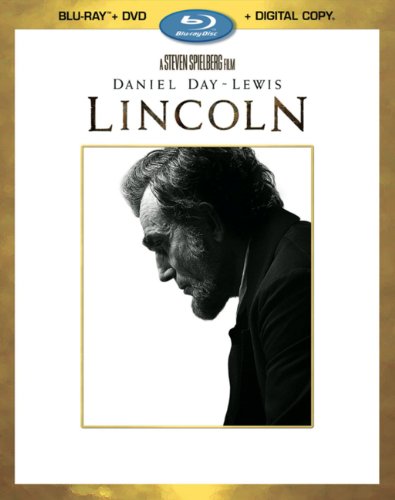
Every four years, our nation fights a civil war. Democrats and Republicans argue and debate, shake hands and kiss babies, and point fingers and dig up dirt as they struggle to place their candidate in the White House. While it’s easy to become jaded and cynical about our political system, longing for the good old days of virtuous politicians, Steven Spielberg’s biopic, Lincoln, suggests that the old days might not have been as good as we tend to think.
Lincoln focuses on just one month—January of 1865—as the newly re-elected President Lincoln (Daniel Day-Lewis) sets out to get the House of Representatives to pass the Thirteenth Amendment and free the slaves. With help from some skeptical cabinet members, he struggles to get the members of the Republican party on the same page while searching for the 20 Democrats needed to obtain a two-thirds majority.
Meanwhile, the Civil War rages on. The Confederates are weak, though, and the war may soon be over—which, in Lincoln’s eyes, makes the passing of the Thirteenth Amendment all the more urgent.
Though you may expect Lincoln to feel a little too much like a long, droning American History lecture, Spielberg presents the subject matter in a way that you’ve never seen it before; he tells the story in a way that you’ve never heard it before. Lincoln is a long movie—and it’s mostly just a whole lot of talk—but there’s nothing dry or droning about it. It’s brilliantly written with the right touches of humor and suspense, and it’s guaranteed to make you think just a little bit differently about things like the political process—and good ol’ Honest Abe.
This Lincoln isn’t exactly the pure and virtuous character of history books. While he’s definitely fighting for an important cause, he also fully understands the system. He’s well aware that, in order to win the battle, he’ll have to fight dirty. And if he has to do a little bit of wheelin’ and dealin’—if he has to pull some strings and tell some little white lies to get what he wants—well, that’s exactly what he’ll do.
At the same time, though, Not-So-Honest Abe is still an undeniably personable character. He may wield his presidential power behind closed doors, but, out on the street, he’s easy-going and friendly—always happy to talk to the people. He’ll shake their hands, pat them on the back, and call them by name—and he’s always got an amusing little anecdote at the ready.
Daniel Day-Lewis gives a stellar performance as the 16th president. The resemblance, of course, is uncanny (to the point that it’s almost distracting)—but there’s so much more to the performance than just a good makeup job. While the Oscar-winning actor is infamous for over-playing his roles, it seems that he’s finally learned that you don’t always have to yell to get the audience’s attention. Instead, he’s surprisingly low-key as Lincoln, giving him an irresistible charm. The result is absolutely riveting; this year’s Oscar for Best Actor is his to lose.
While this one performance alone may have made the movie worth watching, however, Day-Lewis isn’t alone. The cast is a who’s who of some of Hollywood’s best actors—with everyone from Jackie Earle Haley to Joseph Gordon-Levitt appearing in small but noteworthy roles. Tommy Lee Jones, especially, gives a remarkable supporting performance as a temperamental abolitionist who’s not afraid to speak his mind.
From writing to casting to acting, Lincoln is an overwhelming success—Spielberg’s best film in years. Even if you tended to doze off during high school history classes, don’t miss this unconventional biopic. You won’t be tested on the material later, but you won’t soon forget this captivating history lesson.
Blu-ray Review:
The four-disc Blu-ray combo pack release of Steven Spielberg’s Lincoln is about as weighty as the film itself, with extras covering just about every step of the filmmaking process.
The first of two Blu-ray discs includes a copy of the film and a pair of behind-the-scenes features. A Historic Tapestry: Richmond, Virginia explores the filming location and discusses its significance, while A Journey to Lincoln gives a brief overview of the things like the project’s history, its inspiration, and the screenwriting process.
The second, extras-only Blu-ray disc includes another four fascinating behind-the-scenes features—like In the Company of Character, which discusses the cast, the characters, and Daniel Day-Lewis’s infamous method acting. Crafting the Past explores some of the fascinating detail work that went into telling the story as accurately as possible—everything from set design to costumes and makeup. In Lincoln’s Footsteps covers things like editing, scoring, and the film’s important sounds—including the ticking of Lincoln’s own pocket watch and the bells that he would have heard outside his office. And Living with Lincoln covers everything else—from the cinematography to the unusual on-set atmosphere.
These extras should be considered required viewing for aspiring filmmakers—because they offer a fascinating look inside the mind (and the art) of a legendary filmmaker and his extremely talented crew. But even if your idea of filmmaking means shooting home movies of your family vacation, these special features are still worth checking out. Fans of the film will appreciate it even more after watching the extras and learning about the hard work and careful planning that went into the project. Really, it’s impossible to choose just one must-see feature—so I recommend setting aside the time to watch them all.
Listen to Kristin’s review on Reel Discovery.


